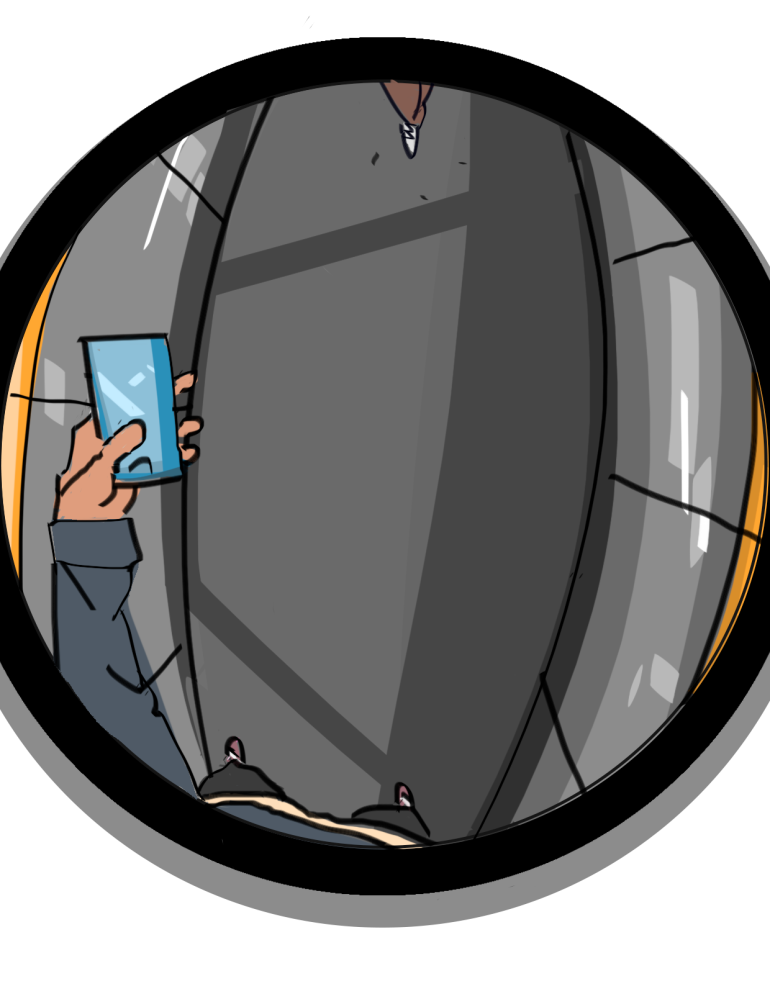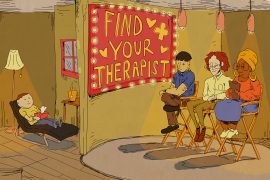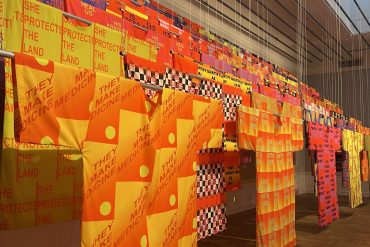“You’re all zombies. Staring at your phones. It’s sad.”
The person sitting across the aisle from me on the Blue Line MAX spoke in a steady, calm voice. I had just taken a seat towards the rear of the car, facing backwards, and the MAX rumbled awkwardly through a left turn. I was, in fact, looking at my phone and making a concerted effort not to acknowledge the speaker. Using our public transit system, it’s a tactic derived from experience. You have to trust your instincts and know when not to engage.
The voice continued. “There’s a whole world out there. I’m sorry you’re all missing it. Look at you. Zombies.” There were four or five us in the scope of the passenger’s criticism: zombie-commuters on a rainy Saturday, in rain jackets and with bags, staring at our phones and riding backwards. No one responded. The human on the other side of the voice was close to me, a couple feet away. But the tone was too familiar; bait for a conversation that already felt like a confrontation.
I don’t like ignoring people. Even out of a desire to avoid conflict, it feels dehumanizing. I don’t want to have to keep my defenses up in our city. I wanted to turn and meet the speaker’s eyes—but what could I say that would be sincere or kind or reasonable? Something along the lines of: “Hello—you’re right, my phone has turned me into a zombie. I should be noticing the world, instead of avoiding the people around me”?
I closed the opened app on my phone and, not wishing to draw attention, turned my eyes out the window. The speaker was right; outside of the sinkhole that is my phone, autumnal Portland was misty and filled with vivid detail. I took in the sight of the Saturday Market at Skidmore Fountain. The vendor stalls were bundled in extra tarps and tapestries to keep the goods dry. It was bustling, despite the chill. Seeing the market stirred memories of my first summer in Portland, back in 2007. I had never been to a street fair like this when I first arrived. The market was novel for me then, and I loved listening to the buskers. I haven’t visited in a decade. A shirtless man with drumsticks thumped on an array of buckets, punctuating the connection between memory and the present.
The MAX lurched along NW 1st Avenue and, as we passed under the Burnside Bridge, I watched a mural of a man’s face roll by. It was beautiful and haunting. The space beneath the bridge was busy with people, too. Some standing, some walking, some lying down. I felt a knot in my stomach. A bridge as a living room; a sidewalk as a dormitory. Where can you go in this city without the expectation of spending money for access? When a society commodifies every possible aspect of being alive, public space is the last vestige of free living. The MAX line becomes a gathering place—and even here there is the threat of fines for riding without fare. No explanation can make sense of the divide between empty office buildings and the human beings without adequate shelter along the sidewalk.
“Maybe I should get off here,” the voice said. It was the Old Town/Chinatown stop. As the passenger disembarked, they raised their voice and directed towards someone behind me.
“Hey! Better hide that bubble, buddy. Your meth pipe. I got your back, hide that bubble…” The doors closed.
I never got a glimpse of their face. Instead, I have the lingering timbre of a disembodied voice, reaching into my mind with dispassionate honesty. I imagine the voice following me through my routines, waking up with me in the apartment I share with my partner and two cats. I imagine the voice floating beside me as I travel to campus and to my job and back. I imagine the voice monitoring my screen time and calling me out for drifting too far into numbness.
“You’re not paying attention. Your homework takes so long because you waste time daydreaming. College is just practice for a job, you’d better learn to manage your tasks efficiently.” The voice chides me as I stare at the vocab glossary of my Reading Ovid textbook.
Sitting on my bed and setting the alarm on my clock app, I calculate the minimum sleep required (six hours) before I will return to campus to finish homework. The disembodied voice catches me off guard. “Why aren’t you playing bucket-drums at Skidmore Fountain?”
“I don’t know,” I say aloud. My partner, in bed already, looks up from their phone.
“What?” they ask.
“Nothing,” I reply.





